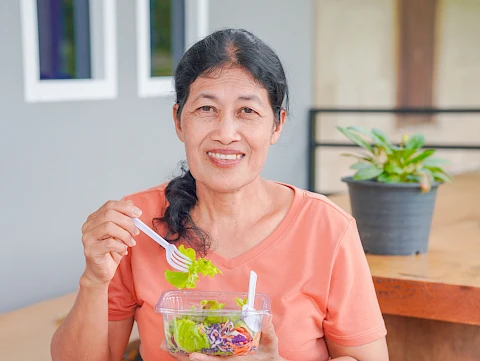
Managing diabetes can be a challenge, especially for seniors. Their shifting nutritional needs on top of the medications they’re taking can make blood sugar management more complicated. However, the right diet can make a significant difference. With a few dietary strategies, seniors can feel in more control of their condition while still enjoying their meals.
Diabetes and Nutrition
Diabetes is a condition where the body has trouble processing sugar effectively. Seniors with diabetes need to pay extra attention to what they eat since nutrition plays a crucial role in managing diabetes. Eating well can help keep blood sugar levels stable, reducing the risk of complications.
Meal Planning Tips
Planning meals can be an excellent way to manage diabetes. Start your day with a healthy breakfast. Try oatmeal with a sprinkle of nuts or eggs with whole-grain toast. Lunch could be a salad with grilled chicken or a turkey sandwich on whole-grain bread. For dinner, think about having a portion of fish or lean meat, cooked vegetables, and a small serving of brown rice or quinoa.
The goal is to have balanced meals that include a mix of protein, healthy fats, and carbohydrates. Creating a weekly meal plan reduces last-minute, unhealthy eating choices. Stick to a grocery list that emphasizes fresh produce, lean proteins, and whole grains to make mealtime both nutritious and stress-free.
Snack Ideas for Diabetic Seniors
Snacks can be tricky, but they can also help maintain blood sugar levels throughout the day. Healthy options include:
- Greek yogurt with a few berries
- A handful of unsalted nuts
- Sliced apple or pear with peanut butter
- Veggie sticks like carrots or celery with hummus
Consider the portion size and the timing of snacks. Eating every few hours can prevent blood sugar spikes or drops. Easy-to-prepare snacks mean more time for relaxing and enjoying other activities.
Reading Food Labels
Understanding food labels helps you make informed choices. When reading labels, pay attention to the carbohydrate content. This includes both sugars and fibers. Look at the amount of saturated and trans fats, as well as the total calorie count. Some key components to focus on are total carbohydrates, which directly impact blood sugar, dietary fiber that can help reduce sugar spikes, sugars (aim for lower sugar options), and fats (opt for foods low in saturated and trans fats).
Consistent Carbohydrate Intake and Portion Control
Eating the same amount of carbohydrates at each meal helps maintain constant blood sugar levels. Portion control is equally vital. Eating more than your body needs can cause blood sugar levels to rise. Consider using smaller plates to help with this.
When eating out, try sharing a dish or pack half away for later. Tools like a measuring cup or food scale are great for keeping portions in check. Certain apps and websites can also help with meal planning and calculating nutritional information.
Senior Helpers Salem, OR, Can Assist With Meal Planning and Prep
Managing diabetes through nutrition requires attentiveness to meal planning, understanding food labels, and consistent carbohydrate intake. If you’re struggling with meal planning and preparation or even with daily living activities, Senior Helpers Salem, OR, can help. We provide professional senior in-home care and support that covers various facets of elderly care. Contact us to explore our personalized services in Salem, Dallas, Keizer, Albany, and Corvallis!